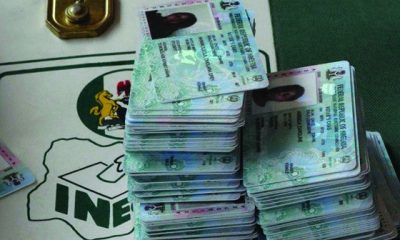Business
Prices of meat, rice, garri increased in February, says NBS
The National Bureau of Statistics (NBS) says prices of beef, rice, beans, onion, white garri, yam, and bread, increased in February.
The bureau disclosed this in a report, titled, ‘Selected Food Prices Watch (February 2024)’, released on Saturday.
According to the report, the average price of 1kg local rice stood at N1,222.97 last month, signifying a 134.81 percent rise in price on a year-on-year basis — from N520.84 recorded in February 2023.
NBS said it also signifies a 19.69 percent increase in price compared to N1,021.79 recorded in January 2024.
“The average price of 1kg of Beef boneless increased by 49.41% on a year-on-year basis from N2,445.96 in February of last year (2023) to N3,654.56 in February 2024,” the bureau said.
“On a month-on-month basis, the average price of this item increased by 10.22% from N3,315.78 in January 2024. The average price of 1kg of Beans brown (sold loose) rose by 98.25% on a year-on-year basis from N594.15 in February 2023 to N1,177.93 in February 2024.
“On a month-on-month basis, it increased by 20.62% from N976.58 in January 2024.
“Similarly, the average price of 1kg of Garri white, sold loose rose by 109.16% on a yearon-year basis from N345.88 in February 2023 to N723.45 in February 2024, while there was an increase of 20.44% on a month-on-month basis.”
‘AVERAGE PRICE OF 1KG OF YAM TUBER ROSE BY 131.33%’
In addition, the average price of 1kg of yam tuber rose by 131.33 percent on a year-on-year basis — up from N436.41 in February 2023 to N1009.56 in February 2024.
“On a month-on-month basis, it increased by 11.93% from N901.94 in January 2024 to N1009.56 in February 2024,” NBS said.
“The state profile analysis in February 2024 reveals that the highest average price of 1kg of Rice local sold loose was recorded in Niger state at N1,670.96 while the lowest was recorded in Borno state at N936.14.
“The highest average price of 1kg of Beef boneless, was recorded in Abia at N4,595.69 while the lowest was recorded in Kogi State at N2,680.03.
“In terms of the average price of 1kg of Beans brown (sold loose), Nasarawa state recorded the highest price at N 1,500.17, while Sokoto recorded the least price at N734.48.”
According to the bureau, Ogun state recorded the highest average price of 1kg of white garri at N821.48 while the lowest was reported in Benue at N480.32.
“The highest average price of 1kg of Yam tuber was recorded in Bayelsa at N 1,452.95, while the least average price was recorded in Borno at N 626.59,” NBS said.
“Also, analysis by zone showed that the average price of 1kg Rice local sold loose was highest in the South-west at N1,336.79, followed by the North-Central at N1,319.95, while the North-West record-ed the lowest average price at N1,073.92.
“The average price of 1kg of Beef boneless was highest in the South-East and the South-West at N4,483.78 and N3,740.72, respectively, while the lowest was recorded in the North-West with N3,315.50.
“The South-South recorded the highest average price of 1kg of Beans brown (sold loose) at N1,395.23, followed by the South-East at N1,384.72, while the lowest was recorded in the North-East with N885.86.”
The south-east and the south-south, according to the bureau, recorded the highest average price of 1kg of white garri at N788.28 and N760.23, respectively, while the product was priced the lowest in the north-central at N638.88.























